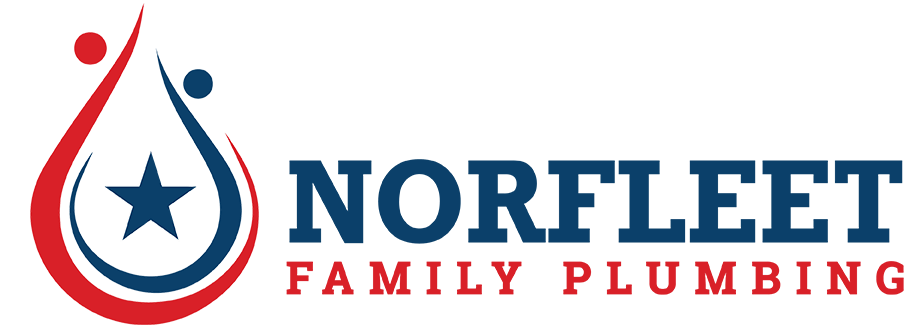How to Conserve Water with Low-Flow Fixtures
Modern plumbing technology offers numerous solutions for reducing water consumption without sacrificing comfort or convenience.
Modern plumbing technology offers numerous solutions for reducing water consumption without sacrificing comfort or convenience. Professional plumbers regularly recommend low-flow fixtures as an effective strategy for water conservation. By implementing water-efficient fixtures, households can significantly decrease their water usage while maintaining optimal performance. Licensed plumbers emphasize that properly installing and maintaining these fixtures play crucial roles in achieving maximum water savings.
Benefits Of Low-Flow Technology
Low-flow fixtures represent a significant advancement in water conservation technology. These innovative devices utilize advanced engineering to maintain intense water pressure while reducing flow rates. Plumbing experts note that modern low-flow fixtures can lower water consumption by up to 50% compared to traditional fixtures. Implementing water-efficient fixtures often results in substantial utility cost savings, making them an attractive option for environmentally conscious homeowners.
Low-Flow Showerheads
Modern low-flow showerheads employ various technologies to provide satisfying shower experiences while conserving water. Professional plumbing repair specialists recommend models incorporating air injection or pulse technology to maintain pressure despite reduced water flow. Quality low-flow showerheads can reduce water usage from two and a half gallons per minute to one and one-half gallons or less. Proper installation by a licensed plumber guarantees optimal performance and maximum water savings.
Water-Efficient Faucets
Advanced faucet aerators represent one of the most cost-effective plumbing upgrades for water conservation. These devices mix air with water to maintain perceived water flow while reducing water usage. Professional plumbers can install aerators on existing faucets or replace entire fixtures with modern water-efficient models. Regular maintenance and cleaning of aerators help maintain their effectiveness and prevent potential issues.
Dual-Flush Toilets
Dual-flush toilet systems offer different flush volumes for liquid and solid waste, optimizing water usage for each situation. Plumbing experts often recommend these fixtures for their significant water-saving potential compared to traditional models. Installing dual-flush toilets typically requires professional expertise to guarantee proper function and maximum efficiency. Licensed plumbers can assess existing plumbing systems to determine compatibility with dual-flush technology.
Smart Irrigation Systems
While not typically considered traditional fixtures, smart irrigation systems are essential to comprehensive water conservation. Professional plumbing repair services can integrate these systems with existing plumbing infrastructure to optimize outdoor water usage. Weather-based controllers and moisture sensors help prevent overwatering while maintaining healthy landscapes.
Water Pressure Regulation
Proper water pressure plays a vital role in the effectiveness of low-flow fixtures. Professional plumbers emphasize the importance of maintaining appropriate pressure levels throughout the plumbing system. Pressure-reducing valves may be necessary to optimize the performance of water-efficient fixtures. Regular pressure monitoring by plumbing experts helps identify and address potential issues before they impact fixture performance.
Maintenance Requirements
Regular maintenance of low-flow fixtures remains essential for sustained water conservation benefits. Professional plumbing repair technicians recommend periodic cleaning and inspection of all water-efficient devices. Mineral buildup and debris can impact fixture performance over time, potentially reducing water-saving capabilities. Establishing a maintenance schedule with qualified plumbing experts helps maintain optimal efficiency.
Cost Considerations
Initial investment in water-efficient fixtures varies depending on the type and quality of selected products. Plumbing upgrades focused on water conservation often qualify for rebates or incentives from local utilities. Professional plumbers can provide detailed cost-benefit analyses to help determine the most effective solutions for specific situations. The long-term savings on water bills typically offset the initial installation costs.
Installation Expertise
Proper installation significantly impacts the performance of low-flow fixtures. Licensed plumbers possess the knowledge and tools necessary to implement water-efficient systems correctly. Professional installation helps avoid problems such as inadequate water pressure or improper sealing. Plumbing experts can also identify and address system issues affecting new fixture performance.
System Integration
Successful implementation of water-efficient fixtures requires consideration of the entire plumbing system. Professional plumbers evaluate existing pipes, water pressure, and other factors that might impact performance. Complete plumbing upgrades may be recommended to maximize the benefits of low-flow fixtures. A systematic approach to water conservation yields the most substantial long-term benefits.
Adopting low-flow fixtures represents a significant step toward responsible water usage in residential and commercial settings. Working with professional plumbers helps guarantee the proper selection, installation, and maintenance of water-efficient devices. As water conservation becomes increasingly important, staying informed about available technologies through qualified plumbing experts supports sustainable water management practices. Regular consultation with licensed plumbers enables homeowners to optimize their water conservation efforts while maintaining comfortable and efficient plumbing systems.
If you need a licensed, bonded, experienced plumber for plumbing installation and service in Chandler, Gilbert, Mesa, Queen Creek, Ahwatukee or San Tan Valley call Norfleet Family Plumbing Heating and Air at 480-681-1764.

